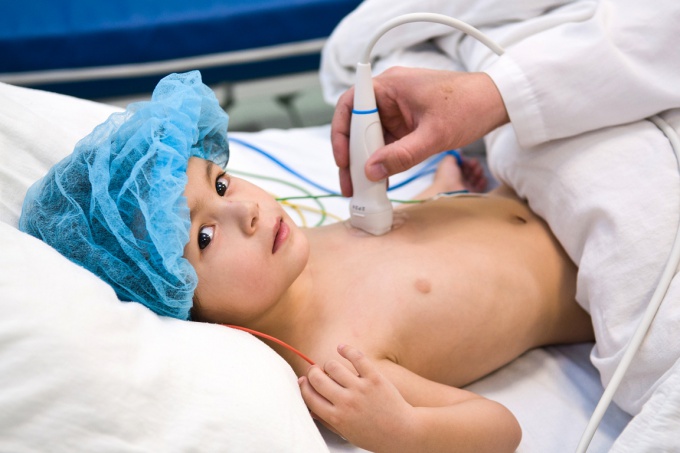Often the diagnosis is exposed at a young age (before 30). There are 2 types of prolapse: primary and secondary. The first form is a genetic defect, but the 2nd form appears as a result of injury or infectious disease.
For some reason there is mitral valve prolapse
As mentioned above, the prolapse may be congenital when there is underdevelopment of tissue that make up the leaf. After a time, folds are stretched due to the insolvency of the fabric and become less elastic. Therefore, the chord gradually begin to lengthen. After the release of blood damaged sashes do not close completely, which leads to the opposite throwing blood . Such a defect is physiological, as is an individual feature of the child, not causing symptoms and discomfort.
In rare cases you can find mitral valve prolapse, acquired after the disease. At a younger age, prolapse occurs after suffering rheumatic lesions of the myocardium (heart muscle). Such diseases include long flowing sore throat, flu or scarlet fever. Therefore, you should carefully treat these diseases, which can develop into the disease of rheumatism. Rheumatism is characterized by fever, joint pain, stiffness and increased.
Older people have mitral valve prolapse can be caused by diseases such as myocardial infarction or ischemic heart disease (coronary artery disease serdca)..
Symptoms
In children, congenital prolapse of the valve, usually with dystonia. The child may often complain of pain in the chest, in the region of the heart. This is not to say about the defect, often the symptoms occurs when the disturbance in the nervous system. These symptoms may appear after severe stress, trauma, or experiences. Pain lasts a short time, from several seconds to 10-15 minutes. In rare cases the discomfort persists to the day.
Some children may experience bouts of palpitations and "fading" of the heart. Congenital mitral valve prolapse never leads to dizziness, fainting, and nausea and vomiting. In rare cases, the prolapse may be accompanied by a small rise in temperature in the evenings (37,2).
Treatment of mitral valve prolapse
In severe symptoms, as a rule, treatment is not assigned. 1 time per year should be ECG and consult a cardiologist. It is not necessary to eat strong coffee, tea, and to refuse Smoking and alcohol.
Treatment is indicated when the patient is often pain in the heart and a rhythm problem. Prescribe treatment can only be a doctor, a self to do dangerous. In rare cases, severe prolapse may require surgery prosthetic valve or plastics.
Complications of mitral valve prolapse
Usually, prolapse occurs positive, but it can lead to complications. These include arrhythmias, infective endocarditis and mitral insufficiency.
